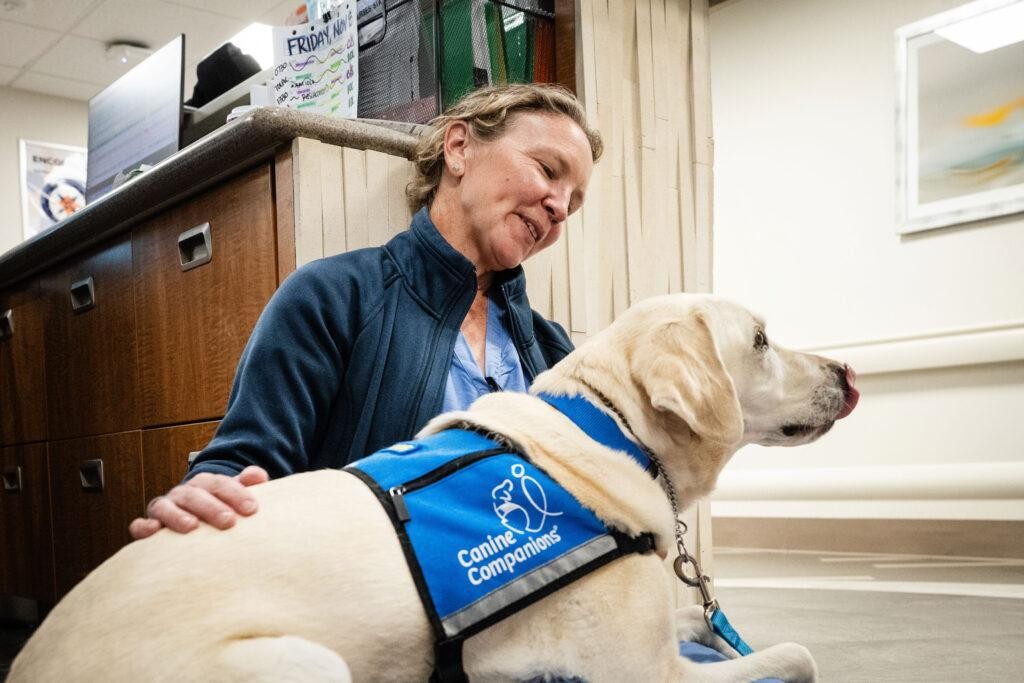
In the bustling halls of HCA HealthONE Rose hospital in Denver, an unexpected team of four-legged caregivers is making a remarkable difference in the lives of both medical staff and patients. These aren't ordinary visitors – they're working dogs specifically trained to support healthcare professionals during their demanding shifts.
Dr. Kristina Fraser, an OB-GYN at Rose, experiences firsthand how these canine companions transform the hospital environment. "When a dog walks onto the floor, everyone takes a deep breath, gets down on the ground, and has a few moments of decompressing," she explains. In the high-stress setting of Labor and Delivery, where medical teams regularly handle complex situations, these brief interactions provide much-needed emotional relief.
The program's origins trace back to Dr. Susan Ryan, who recognized the need for emotional support in healthcare settings through her personal experience with PTSD as an emergency physician. "I just was messed up and I knew it," Ryan candidly shares, describing how she withdrew socially and professionally. After finding healing through animal therapy sessions, she pioneered the integration of facility dogs in emergency rooms through Canine Companions, becoming the first doctor in the organization to do so.
The impact of these therapy dogs extends beyond simple stress relief. Medical professionals often need to rapidly switch between emotionally challenging situations – from delivering difficult news to handling routine cases. The presence of these trained dogs helps healthcare workers process and transition between these demanding moments.
Yellow Lab Peppi, one of the facility dogs, demonstrates the immediate effect these animals have on staff morale. During visits to nursing stations, medical professionals temporarily pause their hectic routines for moments of genuine connection and joy. The simple act of petting a dog or receiving a friendly nuzzle can reset the emotional temperature of an entire department.
As healthcare facilities nationwide face increasing pressure and staff burnout, the success of hospital therapy dog programs offers a promising model for supporting medical professionals' mental health while enhancing the healing environment for patients.